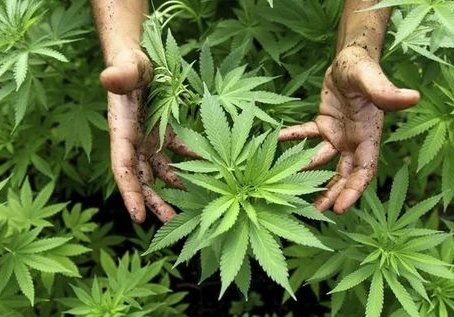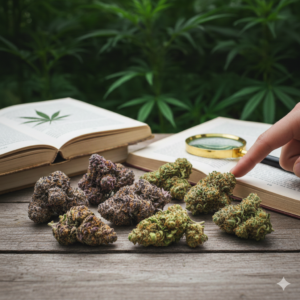The Board of Directors of the European Observatory for Cannabis Cultivation and Consumption (OECCC) has presented the document “CBD: reasons for immediate regulation” to political parties. It requests the regulation of this cannabinoid, present in industrial hemp, which does not generate addiction and is not psychoactive, but has medicinal applications and for the well-being of people.
The Board of Directors of the European Observatory for the Cultivation and Consumption of Cannabis (OECCC) assures that there are reasons to make a clear, complete and immediate regulation of CBD. This cannabinoid can help many people, while generating wealth, work and contributions in Spain. The international CBD market is growing at a good pace and Spain can be a leader.
The World Health Organization recommended, on December 14, 2017, that CBD not be classified as a substance subject to international control. This cannabinoid does not cause addiction and is arousing more and more interest, both for medicinal uses and those focused on well-being in healthy people.
Spain is one of the world’s references in quality CBD, both for the Spanish varieties that are planted all over the world, and for the high quality of the hemp that has been grown here for many generations. Cane-tree tradition that is even reflected in the names of towns, heraldic shields and flags.
Instead of carrying out this regulation, interventions have been made for products with CBD, with different criteria. Given the confusion generated by these actions, the European Observatory for Cannabis Cultivation and Consumption, OECCC, disseminates the report “CBD: Reasons for regulating.”
Although CBD is not recognized as a food, hemp does enjoy this consideration. The United Nations Office on Drugs and Crime, UNODC, establishes the criteria to differentiate between psychoactive cannabis and industrial hemp.
Regional powers in agriculture can open the door to regional legislation that develops the directives for the cultivation of industrial hemp in a more precise way, as well as the trade of its products: including inflorescences, whose trade for industrial use and its cultivation as an activity Gardening and nursery cultivation should be allowed, given that they should be considered agricultural activities as is the case in Italy. It can also go the route of clarifying the regulations as a food supplement.
CBD genetics
In addition to its ancient tradition, Spanish breeding has been at the forefront in the development of high CBD varieties. Different articles from the specialized press allow us to know that the CBD varieties that are grown and sold in countries such as Uruguay, Switzerland, Canada, the United States or Chile came from Spain, where they were created by seed banks in the collector market. These breeders are received as experts by Governments around the world, while in their country the Spanish Agency for Medicines and Health Products denies them the registration of their varieties, making it difficult to register and obtain phytosanitary certificates for these varieties. Meanwhile for farmaindustria everything is easy.
CBD and pharmaceutical industry
Although farmaindustria has always denied the medical usefulness of cannabis, since December 2017 when the World Health Organization report came out, they have moved quickly to try to monopolize this new market that was opening up. The plan is to displace the companies that have traditionally grown hemp in Spain, or better yet subcontract them as farmers, but keep the bulk of the profit, by ensuring that CBD can only be sold by farmaindustria. Apparently, a well-known Spanish pharmaceutical company is about to release a medicine based on CBD, so these interventions, for traditional producers, represent a cleansing of the market they aspire to.
Global CBD market
An example of how farmaindustria acts is the drug Epidiolex, a hemp extract with CBD as an active ingredient. This 2018 it has obtained the license from the American FDA, according to statements by its CEO, the annual treatment will be marketed at $32,500 per patient. The estimated market is about 12 billion dollars. The price of this treatment was established in relation to the costs of other treatments that were already on the market, it is the logic of maximizing profits for companies, at the expense of people. On the other hand, the price of a treatment with hemp extracts ranges between €1,500 and €3,000 annually and could be reduced even further.
It is all a vain effort, through the mutual recognition of commercial products in the European Union, the trade of hemp derivatives or hemp itself in its plant form is allowed, and they can be bought and sold in the Spanish State. . People will not pay $32,500 for a product they can get for less than 10% of this price and buy it online.
Placing obstacles for Spanish companies is only giving away this market to other European companies, at a time when this interesting market is opening up, which will be key in the structuring of depopulated rural areas, where hemp will give excellent results. The estimate of 1.2 billion dollars is only for Epidiolex, but there are reports that estimate that the global CBD market will exceed 20 billion dollars in 2020. Spain cannot afford to turn its back on this opportunity.
Political moment
Es evidente que tanto la venta de estos productos como alimentos derivados del cáñamo, o el reconocimiento a nivel comunitario del CBD como alimento, dada su inocuidad, son posibilidades reales en el ordenamiento jurídico actual. La sociedad civil ha empujado hasta el momento, colocando a España en una posición envidiable para ser referente en el mercado mundial del CDB. Ahora es el turno de la política. Por eso pedimos a todos los partidos del arco parlamentario que actúen con rapidez para defender a los pacientes, así como a los productores españoles de cáñamo y empresas afines.




